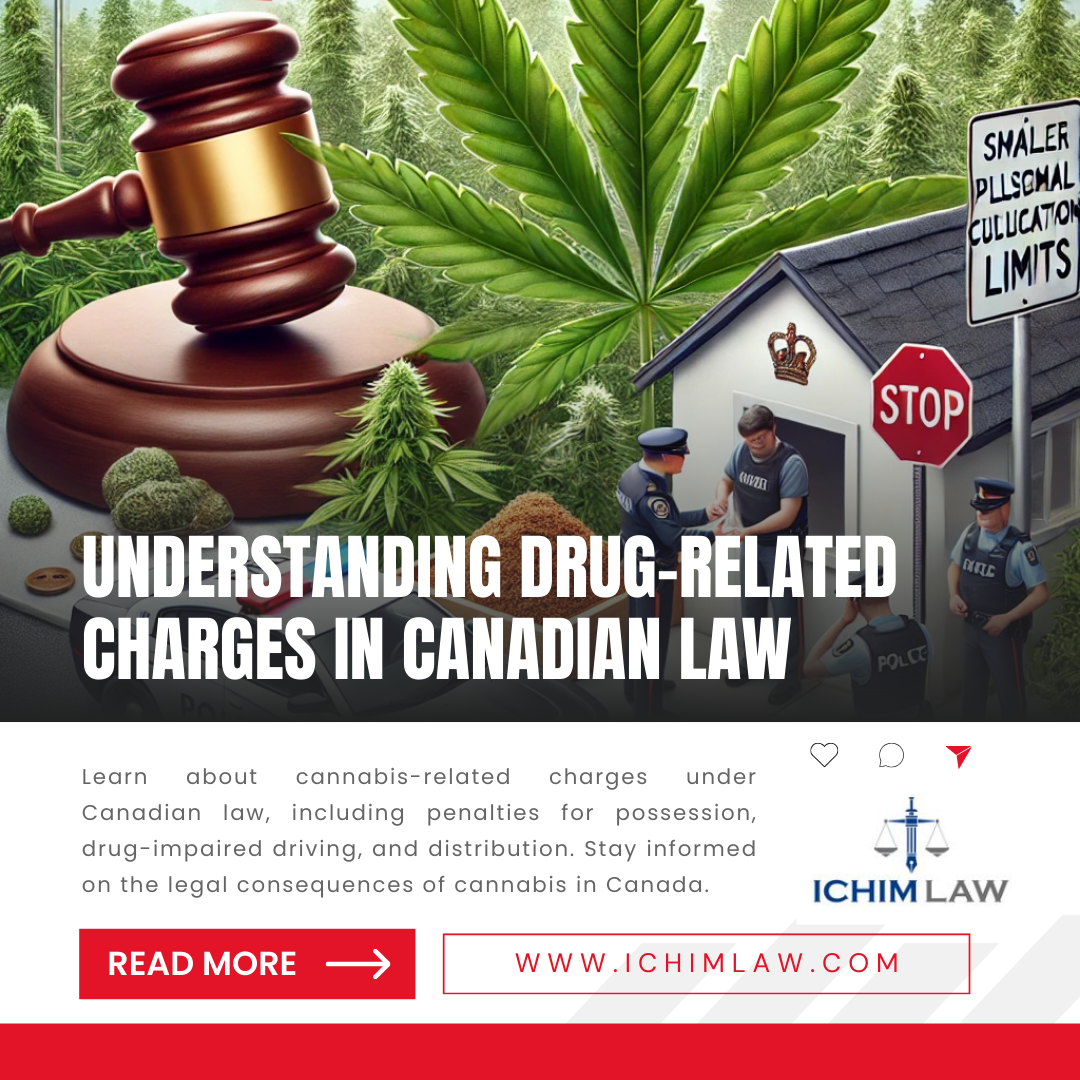Cannabis legalization in Canada has been a transformative step, not only for individual users but also for the legal landscape. With the introduction of the Cannabis Act in October 2018, the country moved toward a more regulated approach to cannabis use and distribution. However, while cannabis may now be legal for personal use, it is crucial to understand that drug-related charges involving cannabis remain a significant concern. The complexities of cannabis law often catch people off guard, leading to criminal charges that carry heavy penalties. Understanding the legal framework surrounding cannabis is essential, especially in areas where its use can still land you in legal trouble, such as impaired driving or illegal distribution.
The Cannabis Act: The Legal Framework Governing Cannabis
The Cannabis Act provides a detailed framework for the legal use, possession, and distribution of cannabis in Canada. This legislation outlines who can legally possess cannabis, how much they can have, and where they can purchase it. Adults aged 18 and over are allowed to possess up to 30 grams of dried cannabis or its equivalent in other forms, such as edibles or cannabis oils. The Act also permits the cultivation of up to four cannabis plants per household for personal use. However, exceeding these limits or ignoring certain rules can lead to criminal charges.
Despite cannabis being legalized, there are still strict regulations governing its distribution and use. Violating these regulations, such as possessing more than the allowed amount or distributing cannabis to minors, can result in serious legal consequences. Offenders could face hefty fines or even imprisonment. The Cannabis Act may have opened the door for legal cannabis use, but it has also established clear boundaries to prevent abuse of the system. Anyone charged with violating these boundaries will need to deal with significant legal repercussions, so it is vital to stay informed about the rules surrounding cannabis in Canada.
Cannabis and Driving: The Dangers of Drug-Impaired Driving
One of the most pressing issues surrounding cannabis is the risk of drug-impaired driving. While cannabis may be legal for personal use, driving under its influence remains a serious offense in Canada. The law views drug-impaired driving with the same severity as alcohol-impaired driving, and the penalties are just as harsh. Canadian law enforcement agencies have the authority to conduct roadside sobriety tests and use advanced drug screening devices to determine if a driver is impaired by cannabis.
Under Canadian law, it is illegal to drive with two or more nanograms of THC—the psychoactive compound in cannabis—per milliliter of blood. If you are found driving with this level of THC in your system, you could face significant penalties. These include fines, license suspensions, and in some cases, imprisonment. A drug-impaired driving charge can carry life-changing consequences, especially if the impaired driving results in an accident, injury, or death. Penalties for drug-impaired driving can escalate quickly, starting with fines for first-time offenders and increasing to up to 10 years in prison for more serious offenses. Understanding how cannabis affects your ability to drive and knowing the legal consequences can help you avoid these severe penalties.
Possession and Distribution: When Cannabis Use Becomes a Criminal Offense
While the Cannabis Act legalized personal use, there are still many scenarios where cannabis possession or distribution can lead to criminal charges. For instance, possessing cannabis for the purpose of illegal distribution remains a serious offense. Whether you are distributing cannabis to friends in exchange for money or operating an unlicensed dispensary, engaging in unlicensed cannabis trade is against the law and can result in significant legal consequences.
Possession for the purpose of illegal distribution is often punished harshly, with the possibility of imprisonment for up to 14 years in the most serious cases. Even sharing cannabis with a friend for compensation can be interpreted as illegal distribution. Selling cannabis to minors is an even graver offense, as the law is designed to protect young people from the effects of cannabis. Distributing cannabis to individuals under 18 can result in long-term imprisonment and other serious penalties. Even in an era of legalized cannabis, the line between legal use and criminal activity is thin, making it essential to understand the legal consequences of improper cannabis distribution.
Legal Assistance for Cannabis-Related Charges
Navigating cannabis laws can be challenging, especially when you’re facing criminal charges. Whether it’s for impaired driving or illegal distribution, having an experienced lawyer on your side is critical. The penalties for cannabis-related offenses can be severe, and without proper legal representation, the outcome can have long-lasting consequences for your personal and professional life. This is why it’s crucial to seek professional legal advice if you find yourself in trouble over a cannabis-related offense.
If you are facing charges related to cannabis, reaching out to Ichim Law can make a world of difference. Ichim Law specializes in drug-related offenses and is well-versed in the complexities of Canadian cannabis laws. Their expert legal team will help you understand your rights, explore your legal options, and guide you through the legal process to achieve the best possible outcome for your case. Whether it’s defending against drug-impaired driving charges or possession for distribution, Ichim Law is equipped to handle your case with expertise and dedication.

